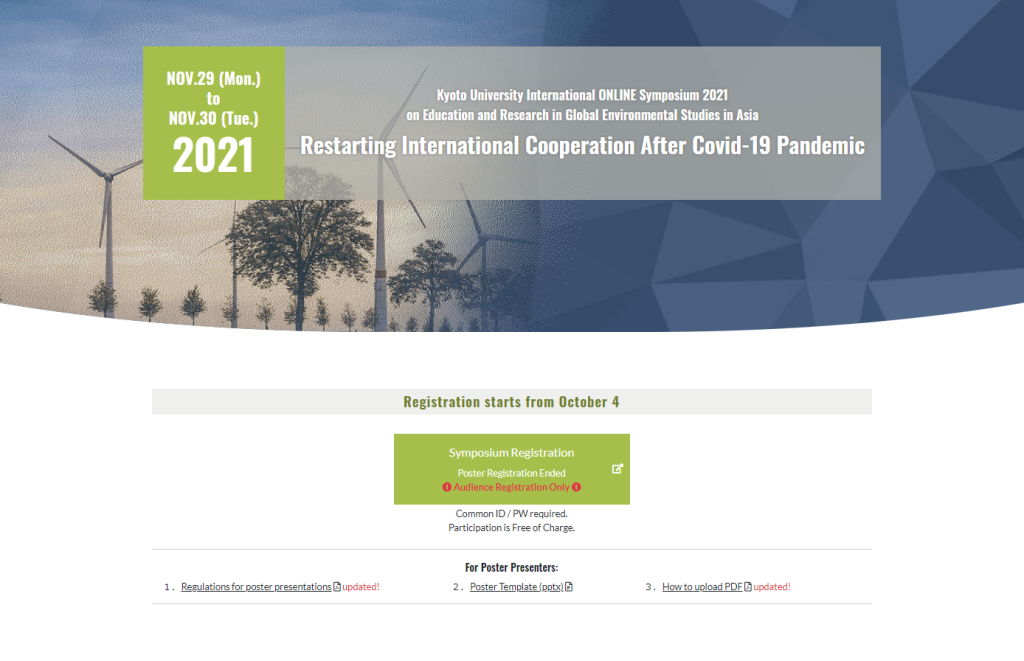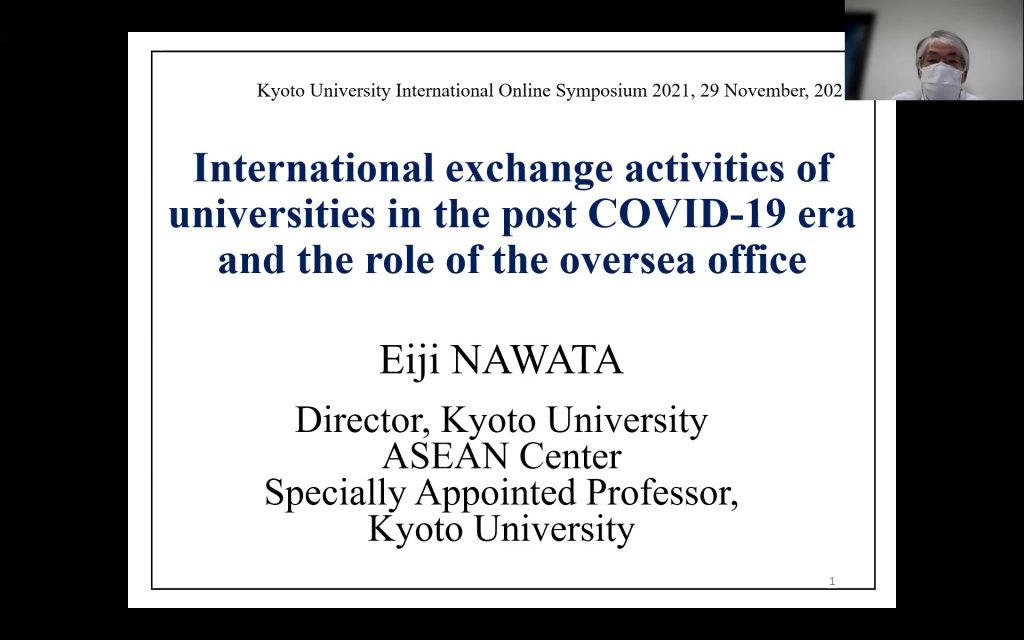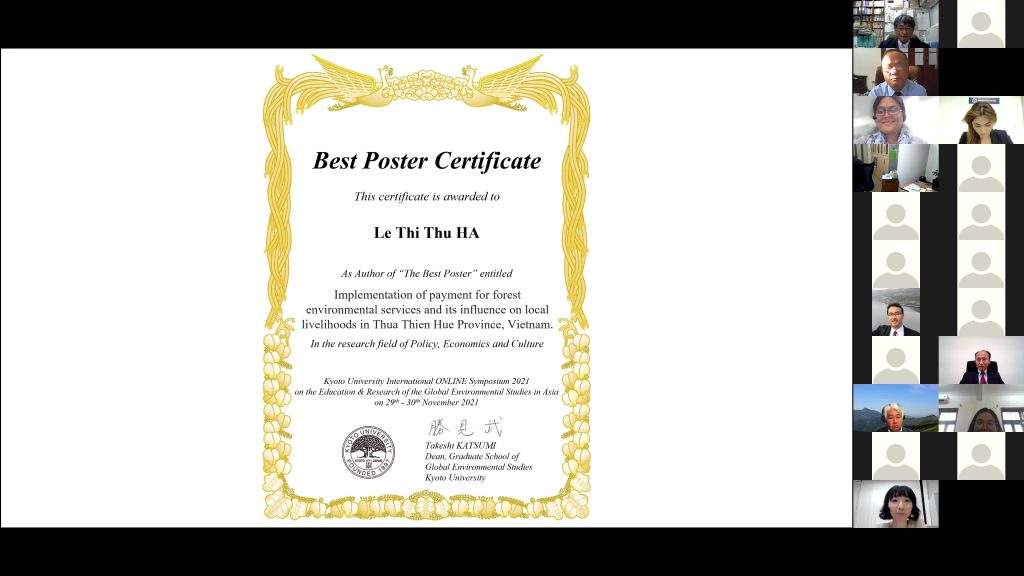On 29 and 30 November, the Graduate School of Global Environmental Studies (GSGES) hosted the “Kyoto University International Online Symposium 2021 on Education and Research in Global Environmental Studies in Asia – Restarting International Cooperation after Covid-19 Pandemic -“. The conference, held online as was the 2020 event due to the pandemic, drew a total of 338 participants over two days — 176 on the first day and 254 on the second — from 61 organizations in 21 countries.
The day-one program opened with an address from Professor Takeshi Katsumi, dean of GSGES, followed by Professor Eiji Nawata, director of the Kyoto University ASEAN Center, who presented a keynote speech detailing the University’s pandemic response and prospects for international cooperation. Afterwards, representatives from GSGES’ partner universities — IPB University in Indonesia, Mahidol University in Thailand, Tsinghua University in China, and Hue University of Agriculture and Forestry in Vietnam — reported on their Covid-19 efforts and then took part in a panel discussion, actively exchanging views and sharing information on related topics.
On the second day, the participating early-career researchers and students were divided into four groups for sessions in: 1) Engineering, Technology, and Science; 2) Agriculture, Forestry, and Biology; 3) Rural & Urban Development; and 4) Policy, Economics, and Culture. The program for each group consisted of poster-Q&A and oral-presentation sessions, the latter featuring invited presentations by early-career researchers with outstanding achievements in these fields. All these sessions saw participants actively exchanging views on the latest environmental study topics.
The closing session then followed with an award ceremony for the best poster for each of the four groups, selected by a committee of 37 members representing 11 universities. Finally, the symposium concluded with remarks from GSGES Professor Shinya Funakawa.
Despite the pandemic restrictions, the conference received positive feedback from many of the participants, some of them calling it a meaningful two days, underscoring the significance of the annual event as an international communication platform for the environmental studies community.


3_Panel-Discussion1-1024x640.jpg)


